

Reflections
Very often in our everyday life we, consciously or unconsciously, use ideas and expressions which are biblical, but do we know the meaning and significance of these invaluable words? Aren’t we using them inappropriately, out of place? The show “Reflections” touches upon these issues.


Armageddon
This word is used with the meaning of the last battle. In the 16th chapter of the Book of Revelation of Apostle John, we read the following: "And I saw, coming out of the mouth of the dragon and out of the mouth of the beast and out of the mouth of the false prophet, three unclean spirits like frogs. For they are demonic spirits, performing signs, who go abroad to the kings of the whole world, to assemble them for battle on the great day of God the Almighty. As the Lord said "Behold, I am coming like a thief! Blessed is the one who stays awake, keeping his garments on, that he may not go about naked and be seen exposed!" And they assembled them at the place that in Hebrew is called Armageddon."


Grapes of Wrath
This expression is used to demonstrate the increase and activation of revolutionary powers of people. American writer, Nobel Prize winner John Steinbeck titled his novel written in 1939 as "The Grapes of Wrath." The author writes in this novel that in the souls of the people, the grapes of wrath are filling and growing heavy, growing heavy for the vintage. The origin of this title is considered to be taken from the Book of Revelation of John, 14:18-20, where it is written: "And another angel came out from the altar, which had power over fire; and cried with a loud cry to him that had the sharp sickle, saying, 'Thrust in thy sharp sickle, and gather the clusters of the vine of the earth; for her grapes are fully ripe."

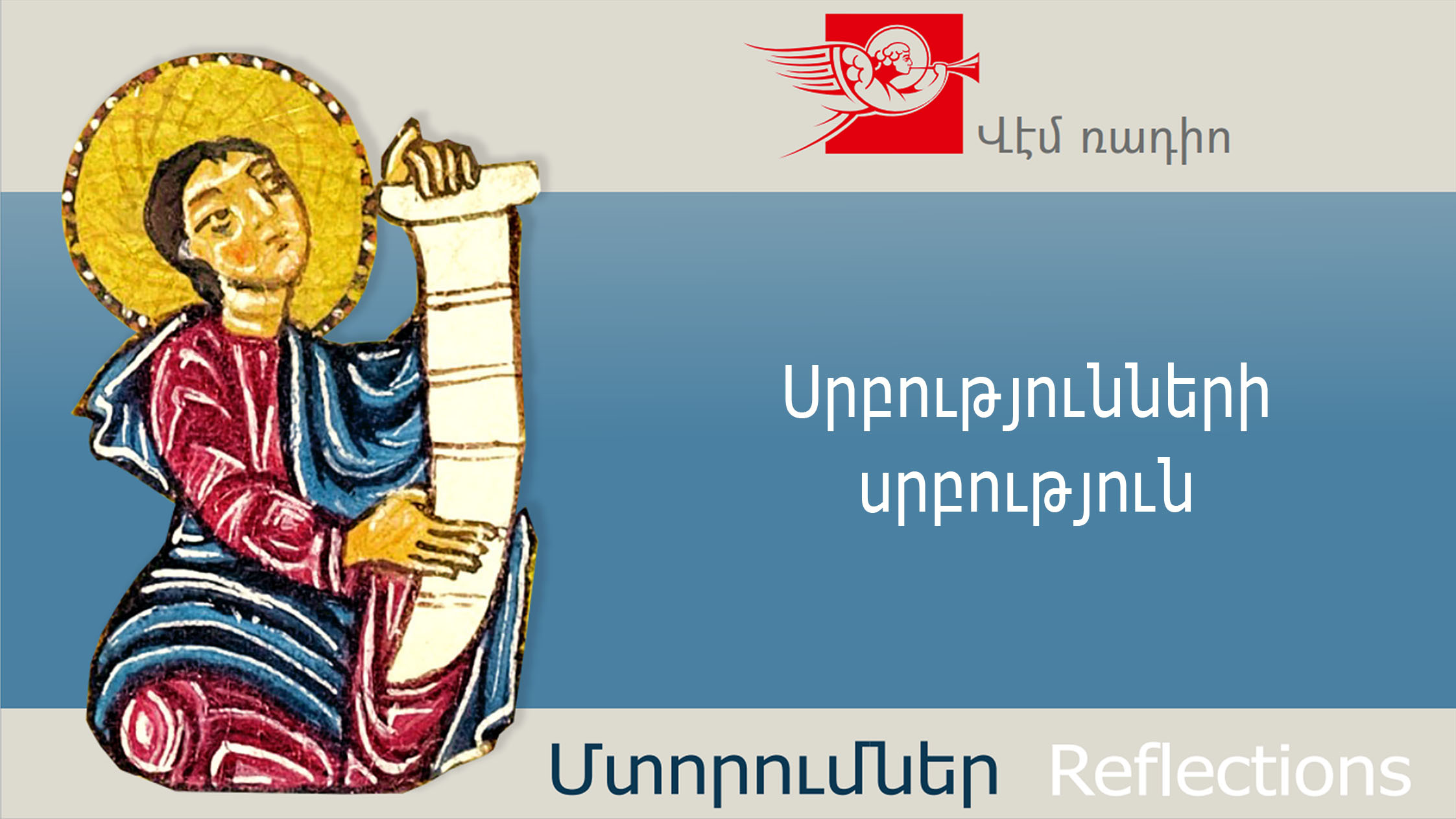
The Holy of Holies
In everyday life, this expression is used to mention something valuable, sacred, also to point out something unreachable for unholy people, as well as has the meaning of a special and inaccessible sanctuary.

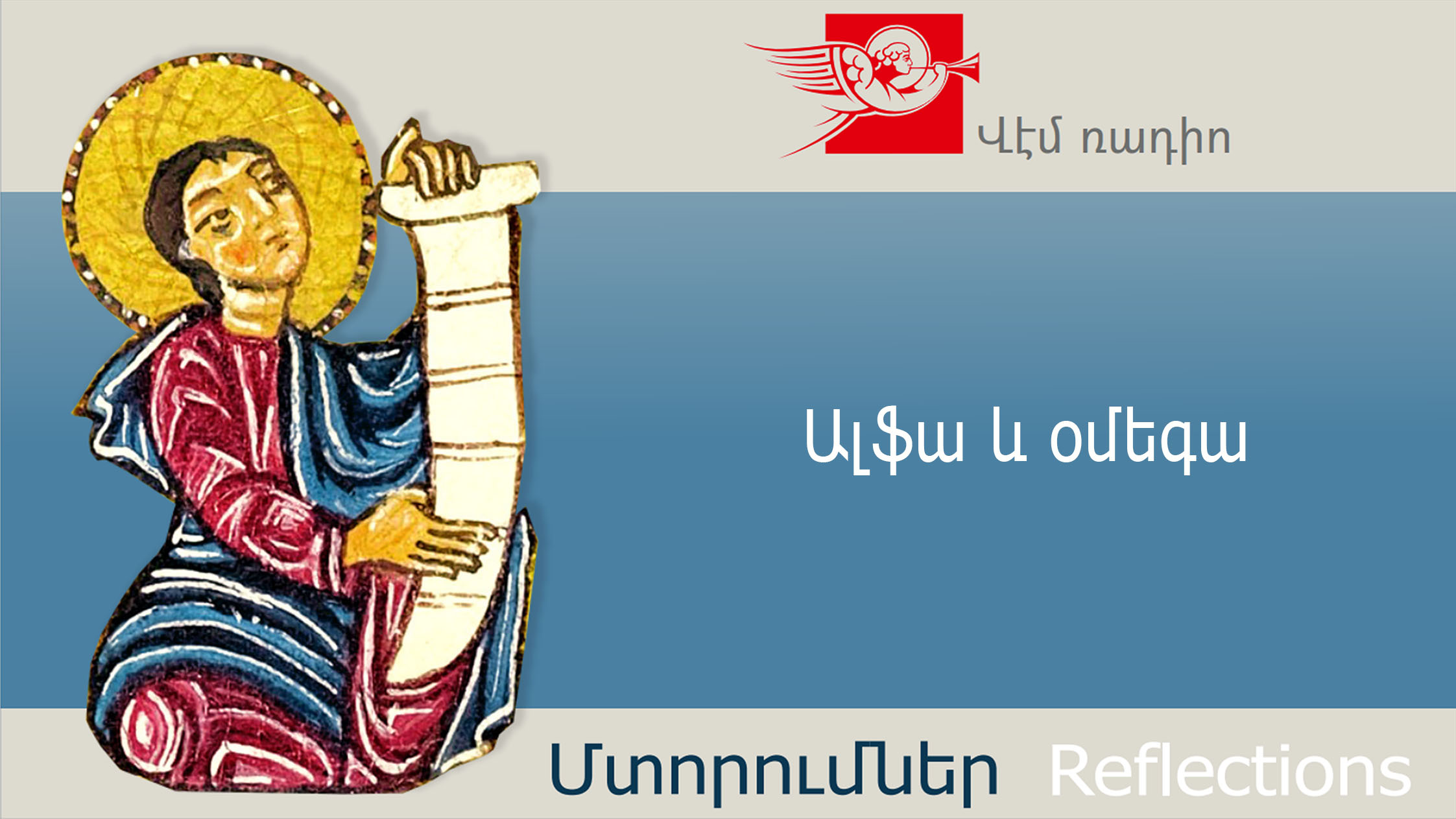
The Alpha and the Omega
This expression is used to point out the beginning and the end of something, the main and basic thing, the essence (in Armenian this expression is used as "Ayb and Fe" or "Ayb and Ke"). This expression is taken from the Book of Revelation of Apostle John. The author of the last book of the Bible starts his book with the word "revelation." In some languages that word is translated is "apocalypsis," which comes from Greek. For the contemporary reader, this word has gained an absolutely specific, even ominous meaning.

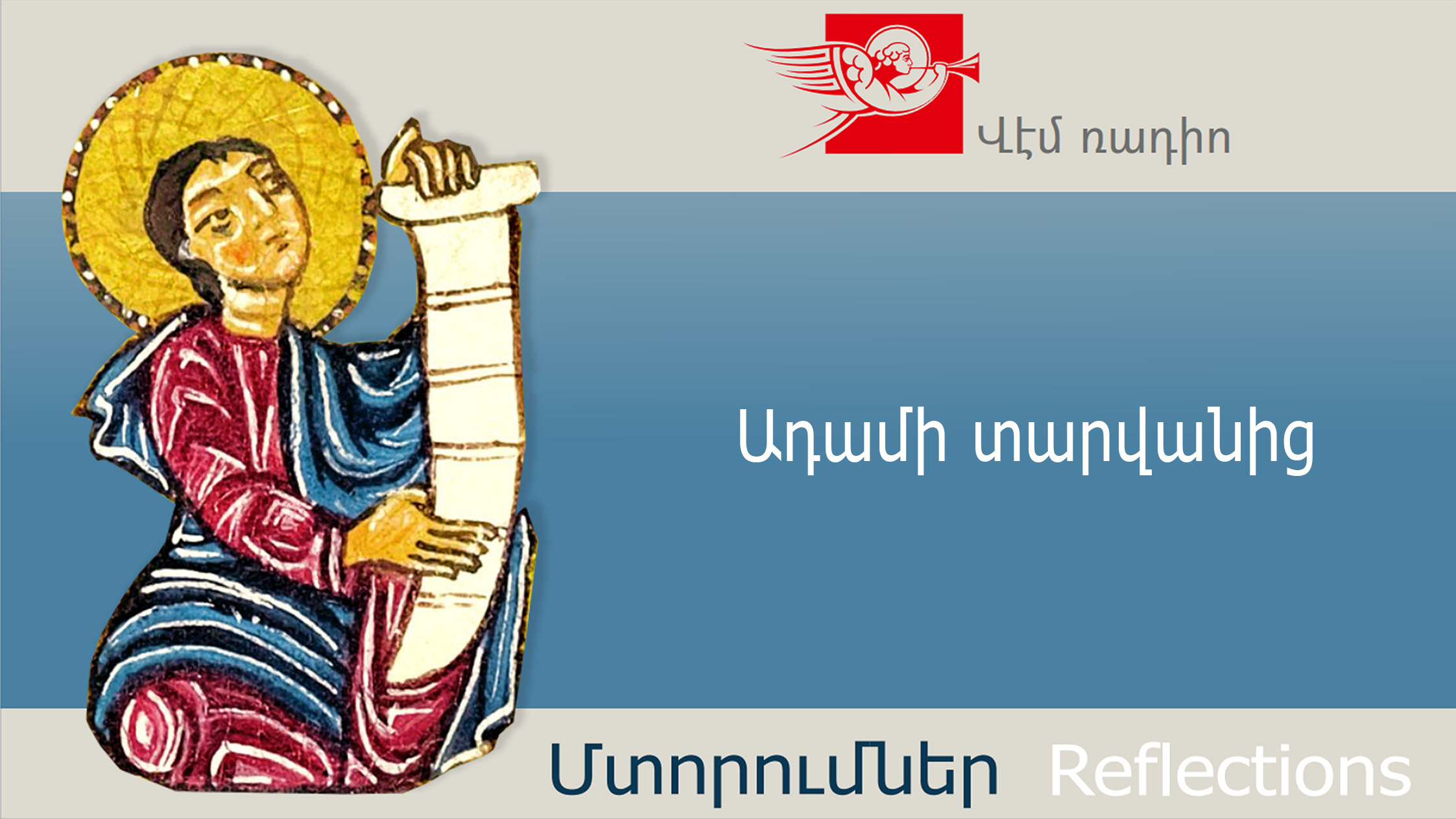
From Тimes of Adam
This expression is used with the meaning of old, ancient times. Adam is both the name of the ancestor of the human race as well as the general name for a human being. According to the Gook of Genesis, on the 6th day of the world creation God said: "Let us make man in our image, after our likeness: and let them have dominion over the fish of the sea, and over the fowl of the air, and over the cattle, and over all the earth, and over every creeping thing that creepeth upon the earth. So God created man in His own image, in the image of God created He him; male and female created He them."


Burying the Talent in the Ground
This expression is used with the following meaning – not to care about the development of one's own abilities, not to use them, ruin them. In ancient times, the word "talent" was used with the meaning of scale (balance), a measure of weight, then to show large amount of money, monetary measure, and only subsequently it became the synonym for human unusual abilities in any sphere.

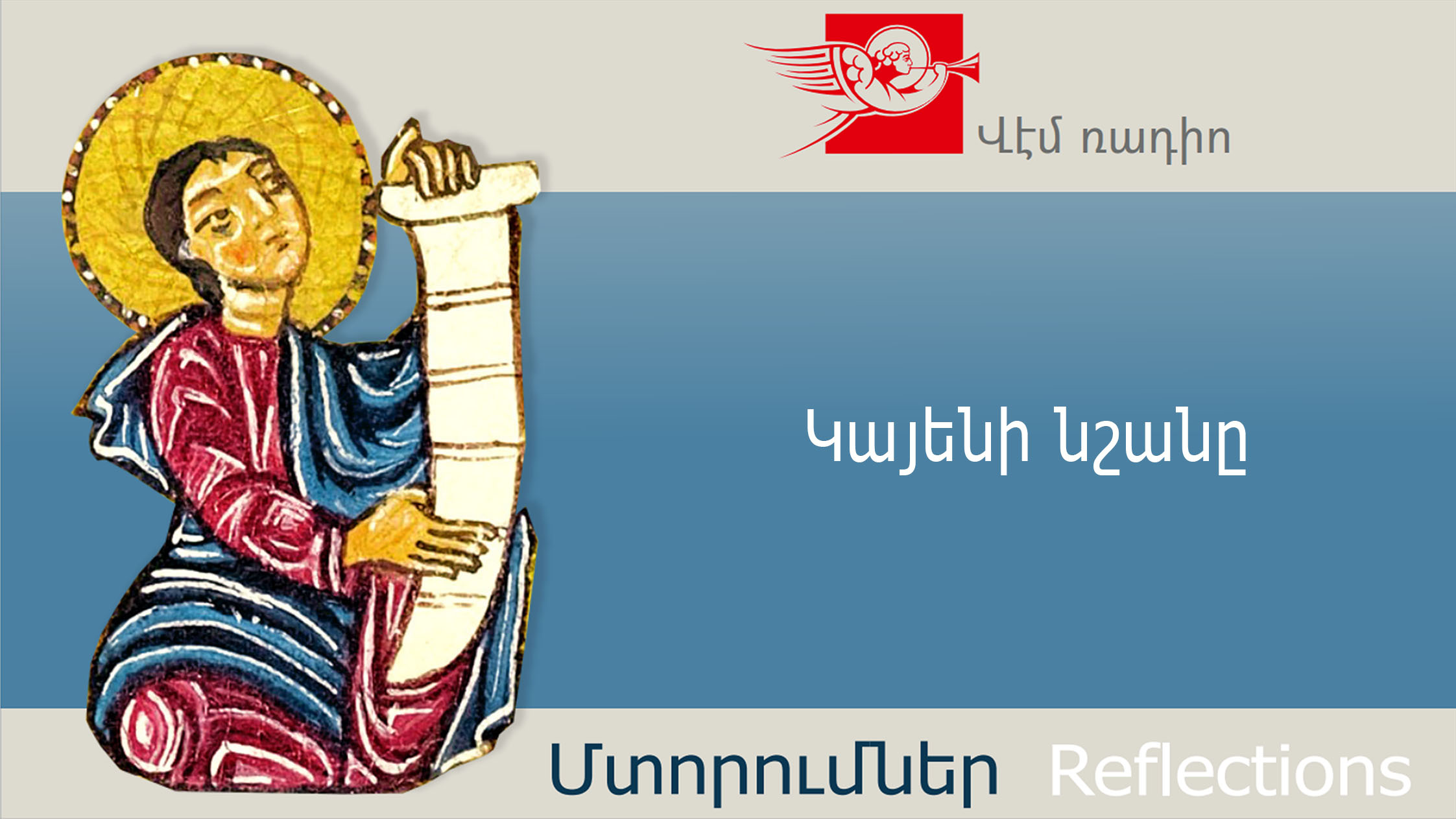
The Mark of Cain
The biblical name Cain has become a common name, to point out a cruel man, a criminal, a villain and a murderer, and "the Mark of Cain" is used in the meaning of a sign or trace of crime.


Golden Calf
This expression is used as a symbol of wealth, gold, power of money, and from here come the expressions "the golden calf worship" and "dance around the golden calf." "Golden calf" was used in the metaphorical sense by the German writer Rudolf von Gottschall and Russian writers Ilf and Petrov as a title of their works. It is taken from the Bible, Chapter 32 of the Book of Exodus.


Honour Thy Father and Mother
This phrase is taken from the Ten Commandments of God. The commandment of honoring parents and adults in general has a universal significance and has a long history.


Pharisees
Today a fake pious, insincere, empty and hollow person is called Pharisee. In the times of the New Testament, the Pharisees were the largest and most powerful party among the Jews.

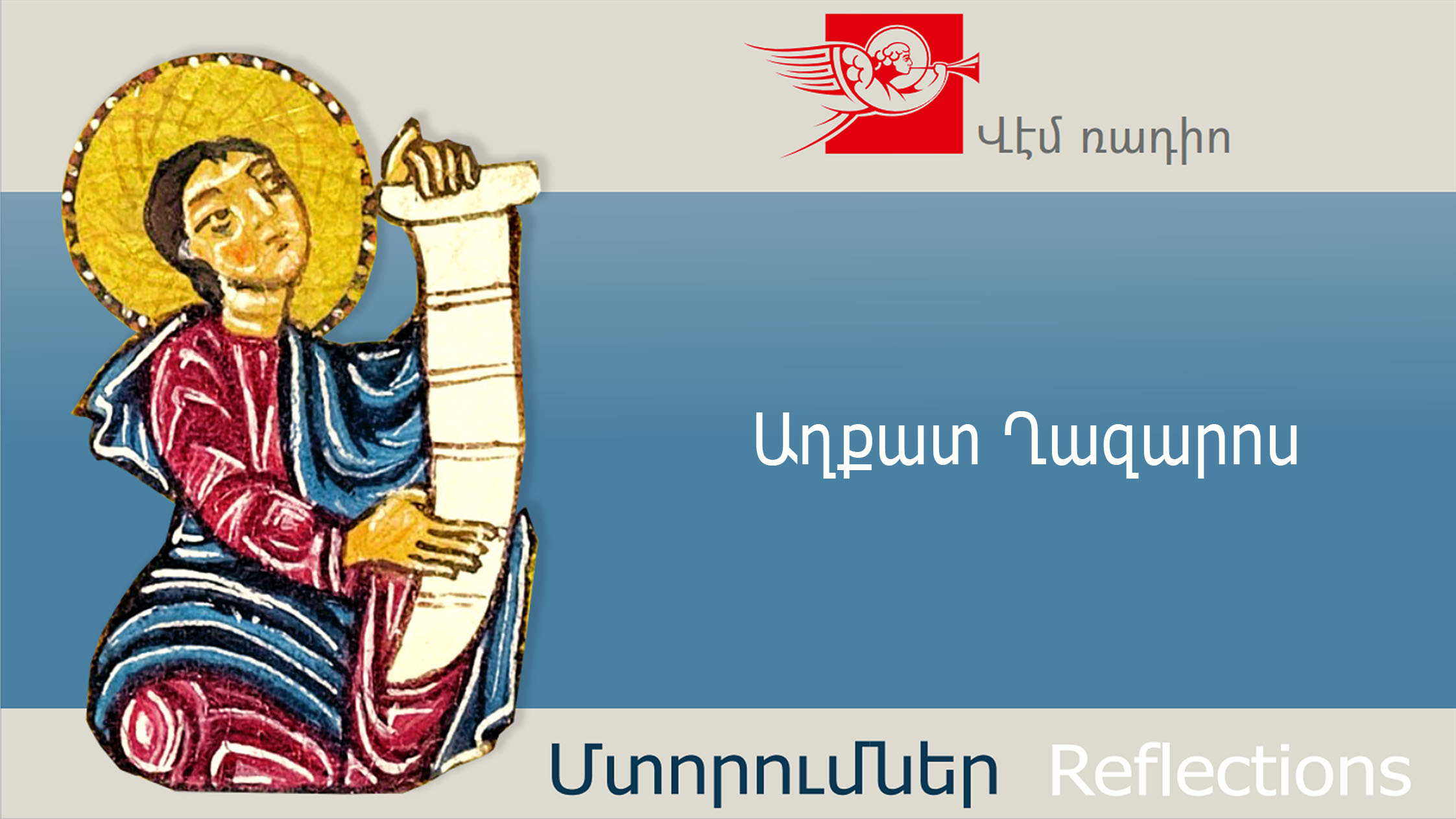
Poor Lazarus
This expression is used to indicate an extreme poverty and means a poor man in a miserable condition. Jesus tells the parable of poor Lazarus in the Gospel according to Luke.


When parents eat unripe grapes, the children’s teeth suffer
The meaning of this expression is that allegedly children get punished for the actions of their parents. It is taken from Chapter 18 of the Book of Ezekiel: “The Lord’s word came to Ezekiel and said: What do you mean by this proverb of yours about the land of Israel: “When parents eat unripe grapes, the children’s teeth suffer”? As surely as I live, says the Lord God, no longer will you use this proverb in Israel! All lives are mine; the life of the parent and the life of the child belong to Me. Only the one who sins will die.”


As the Mother is, so is Her Daughter
This biblical expression is taken from the Book of Ezekiel, Chapter 16, verse 44. There are other such expressions also: “See the mother, take her daughter”; “The fruit does not fall far from the tree.” The Book of Ezekiel reflects one of the crucial episodes of the history of Israel. In Chapter 16, Israel is presented in the image of adulteress, who went with Egyptians, Assyrians, and Babylonians. The love of God toward people is often likened to the love between husband and wife. But unlike human marital relationships where a husband can send away or even hate his disloyal wife, God is patient and merciful.


Solomonic Judgment or Solomonic Justice
This biblical expression means fair and fast judgment that, at first glance, has a rather queer verdict. The son and heir of David, Solomon, ruled in 1015 – 975 BCE. The first manifestation of his wisdom is described in the 3rd chapter of the 3rd Book of Kings.

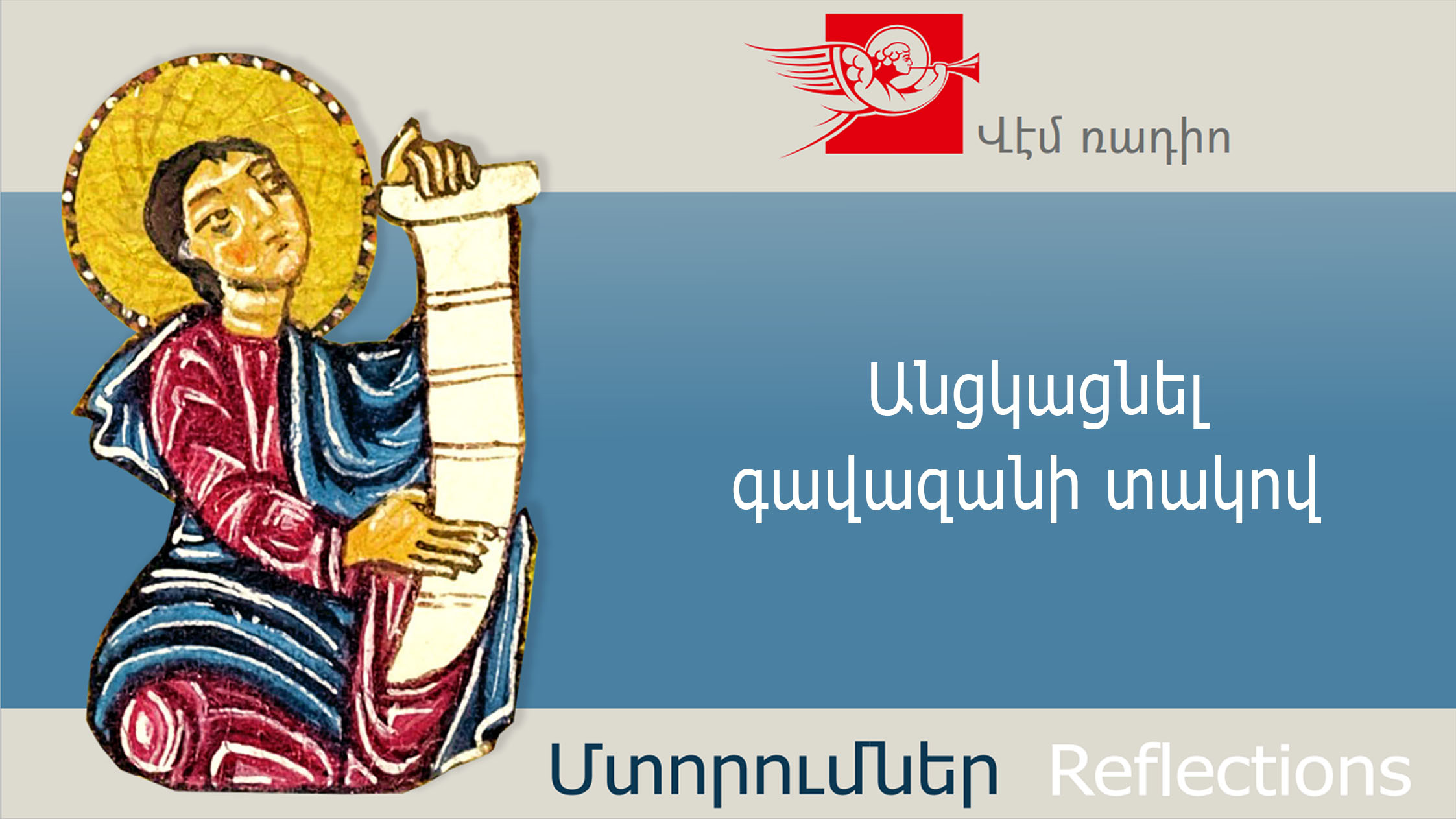
Make Pass under the Rod
In Chapter 20 of the Book of Prophet Ezekiel, God says, “I will make you pass under the rod, and I will bring you into the bond of the covenant.” In the Bible, the notion of rod or staff is associated with the shepherd. In the days of patriarchs, the ancestors of Jews were engaged in cattle breeding and used to lead a nomadic life; therefore, the Holy Scripture conveys numerous pictures of pastoral life.

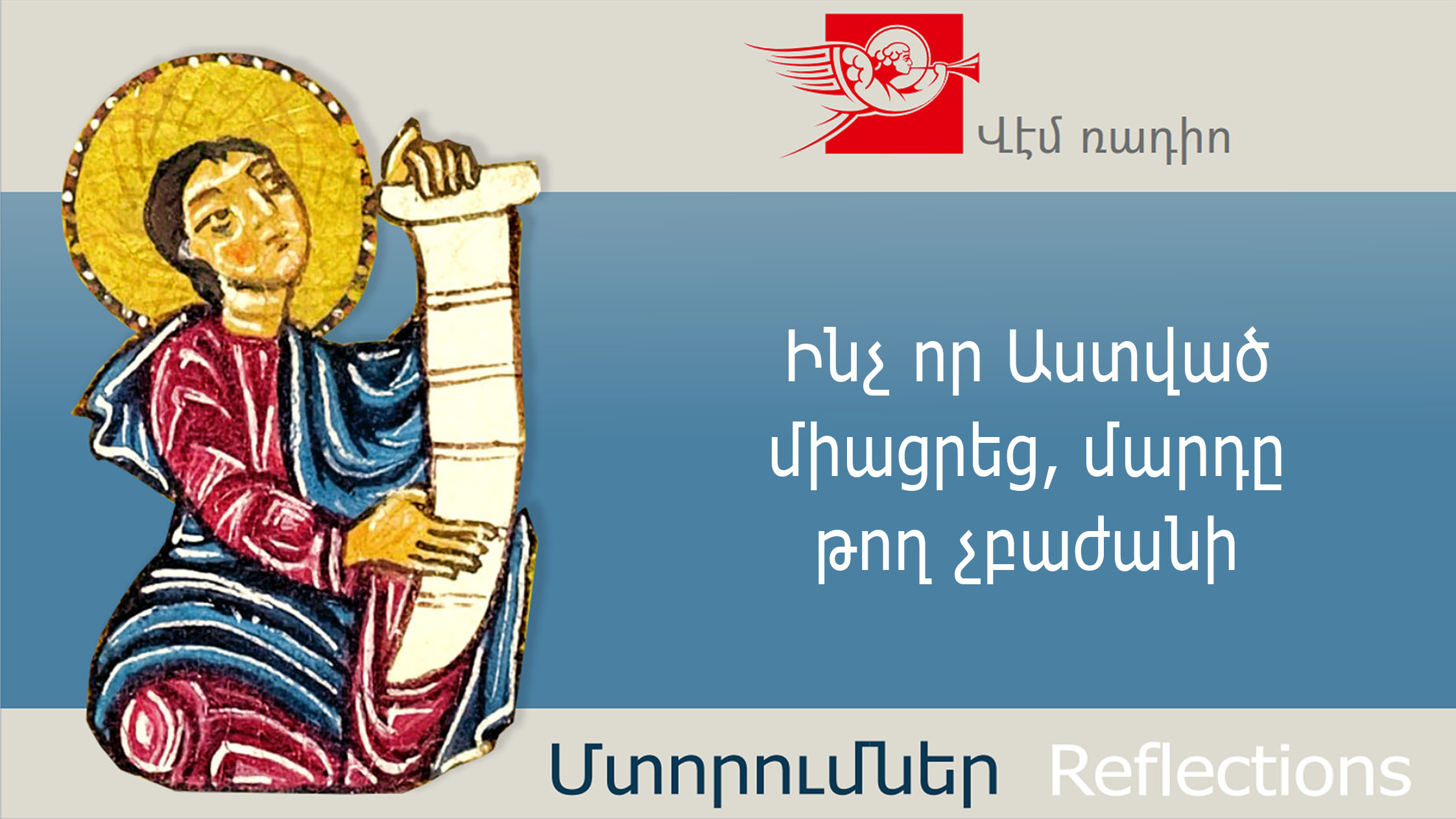
What Therefore God has Joined Together, Let Not Man Separate
This expression is taken from Matthew 19:6. Jesus went away from Galilee and entered the region of Judea beyond the Jordan. As always, a large crowd followed Him. Pharisees came up to him and tested Him by asking, “Is it lawful to divorce one's wife for any cause?” His somehow mysterious answer was, “Have you not read that he who created them from the beginning made them male and female, and said, ‘Therefore a man shall leave his father and his mother and hold fast to his wife, and the two shall become one flesh’? So they are no longer two but one flesh. What therefore God has joined together, let not man separate.”


Job the Long-Suffering
We think about this biblical expression, leafing again through the pages of the Book of Job. The readers of this book are aware that its theme is the sorrow. What is the origin of suffering, and what is its reason? Or, if to take it more personally, why has this exact anguish happened right to me?
And finally, “what to do when sorrow visits me” – the answer to this question comes from the depths of the thoughts of Job wounded by sorrow and confusion and gets revealed in his speeches in the form of poems (Chapters 3-31).

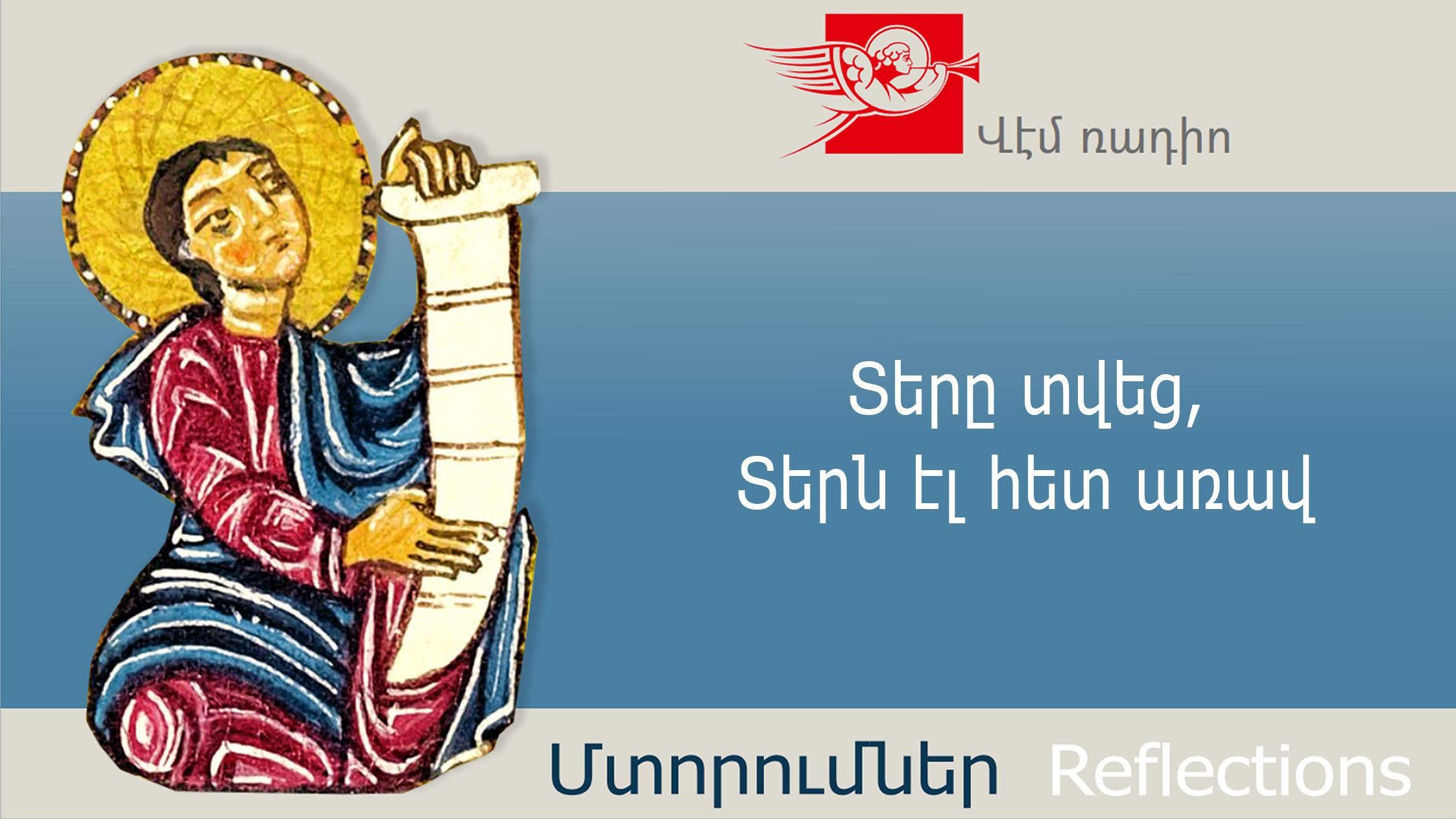
The Lord Gave and the Lord Took Away
This expression has the following meaning – to have a humble obedience during any bereavement. This biblical expression is taken from the Book of Job and we are going to dedicate two episodes to our reflections on it. The readers of the Book of Job are aware that the theme of it is anguish. What is the problem of anguish? Many of us ask why there is suffering in our life? Where does it come from, and what is the reason of it?

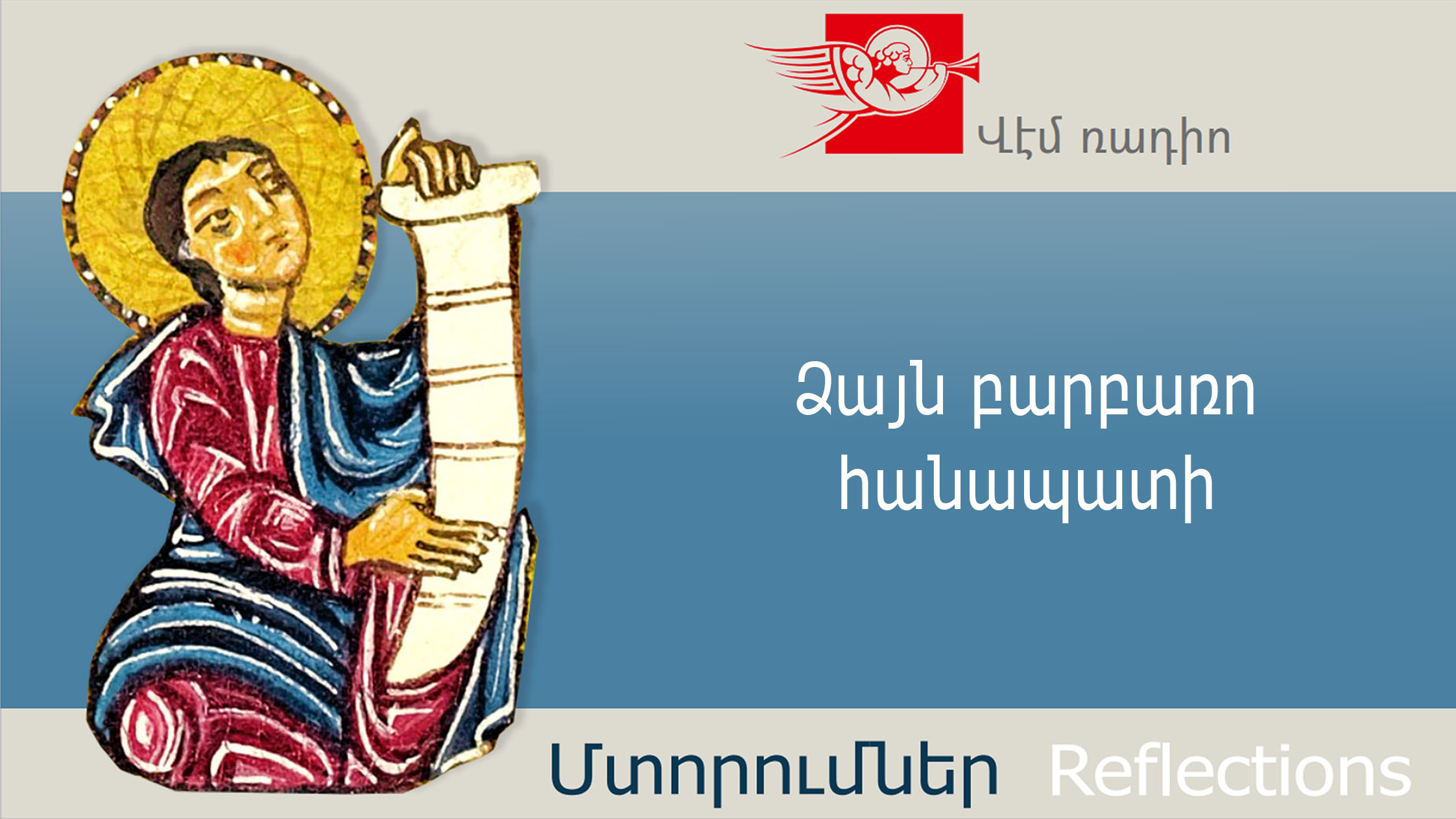
Voice Crying Out in the Wilderness
This expression is used in everyday life as an unresponded word, a call, or word without proper attention. In the days of the preaching of John the Baptist, Jewish leaders sent priests and Levites to him from Jerusalem to find out who John was, whether he was the Christ or a prophet, or maybe Elijah.
John gave negative answers to their questions. They asked, “Who are you? We need to give an answer to those who sent us. What do you say about yourself?” John replied, “I am a voice crying out in the wilderness, “Make the Lord’s path straight” just as the prophet Isaiah said.”

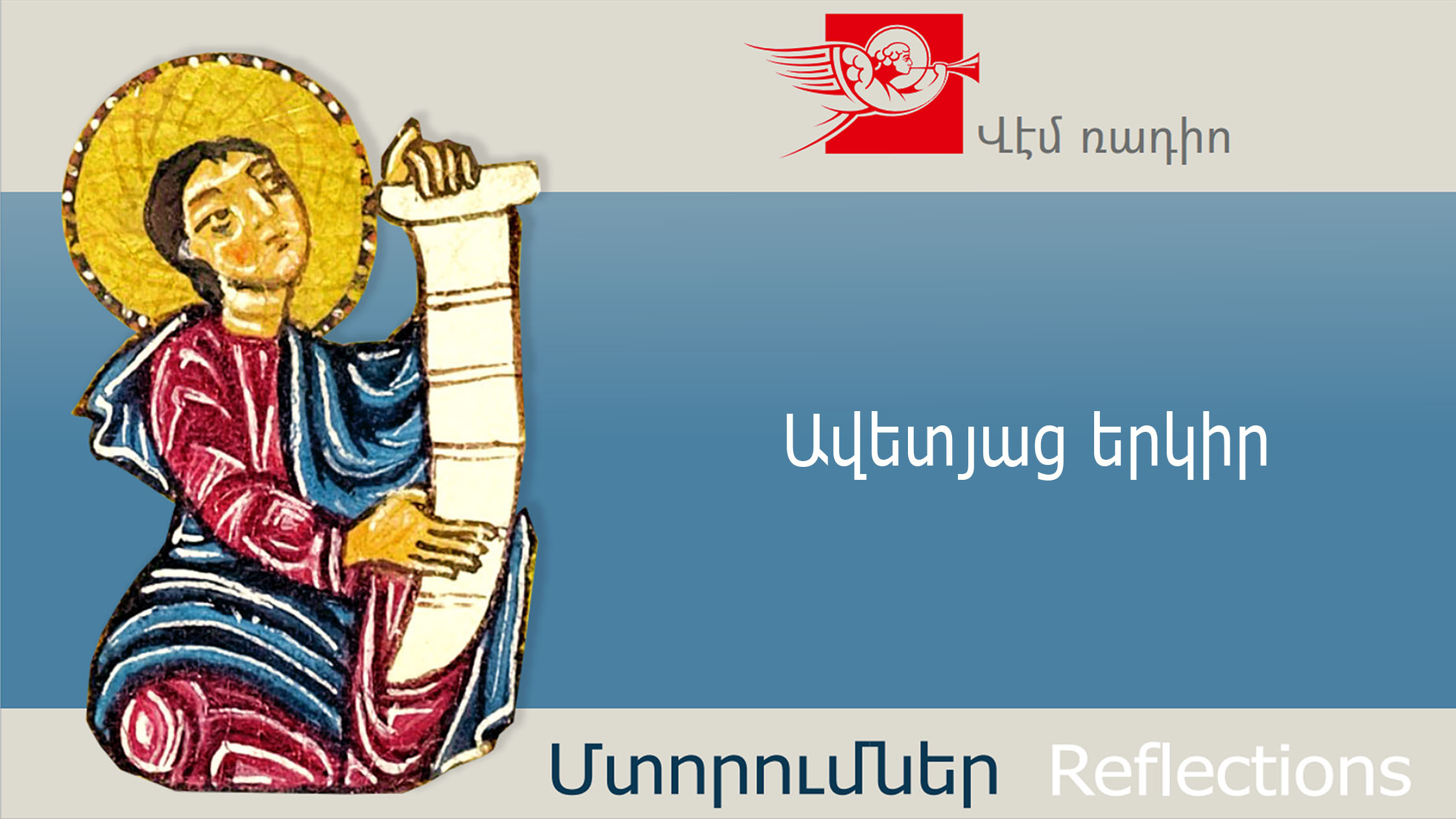
The Promised Land
It’s a place where plenitude and happiness rule. It is something much desired and seams to be the supreme happiness. In the chapter 11 of the Epistle to the Hebrews, Apostle Paul describes the exemplary faith of the ancestors and writes about Abraham: “By faith he sojourned in the land of promise, as in a strange country, dwelling in tabernacles with Isaac and Jacob, the heirs with him of the same promise: for he looked for a city which has foundations, whose builder and maker is God.”